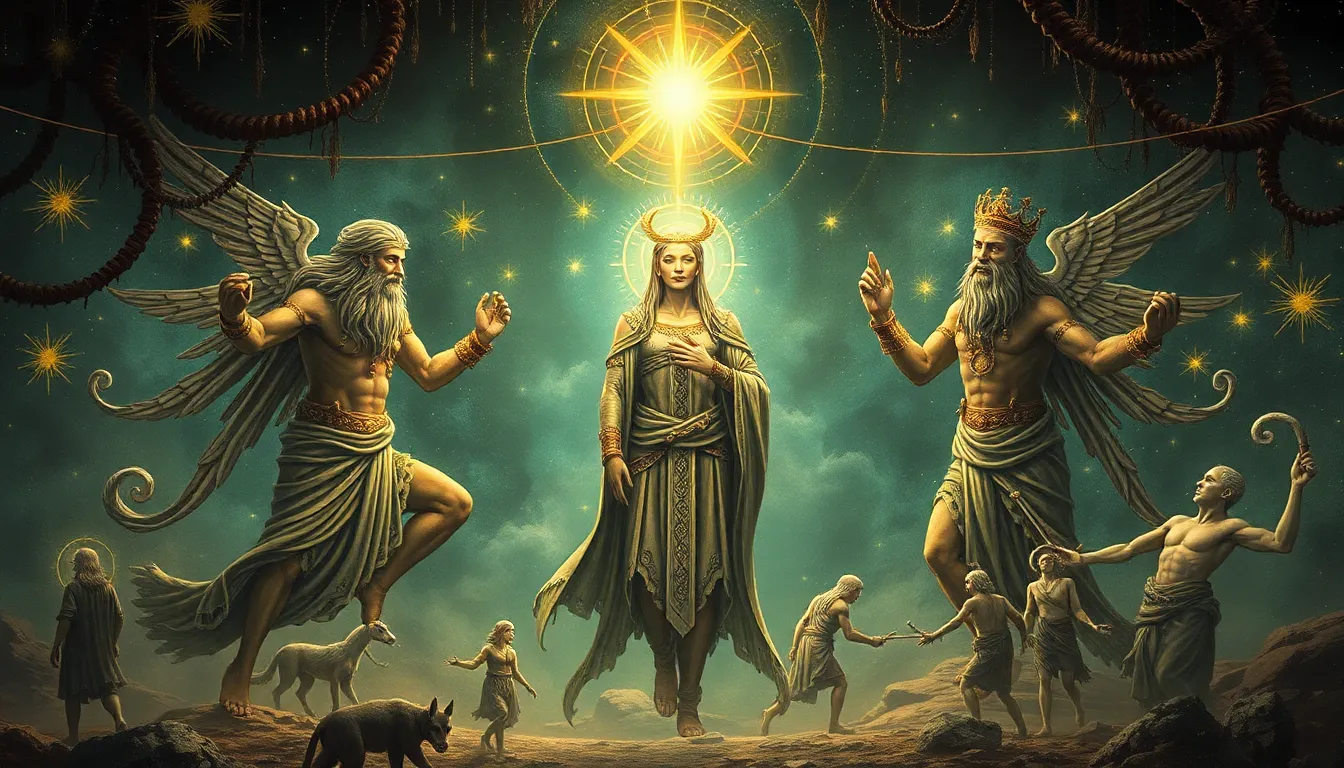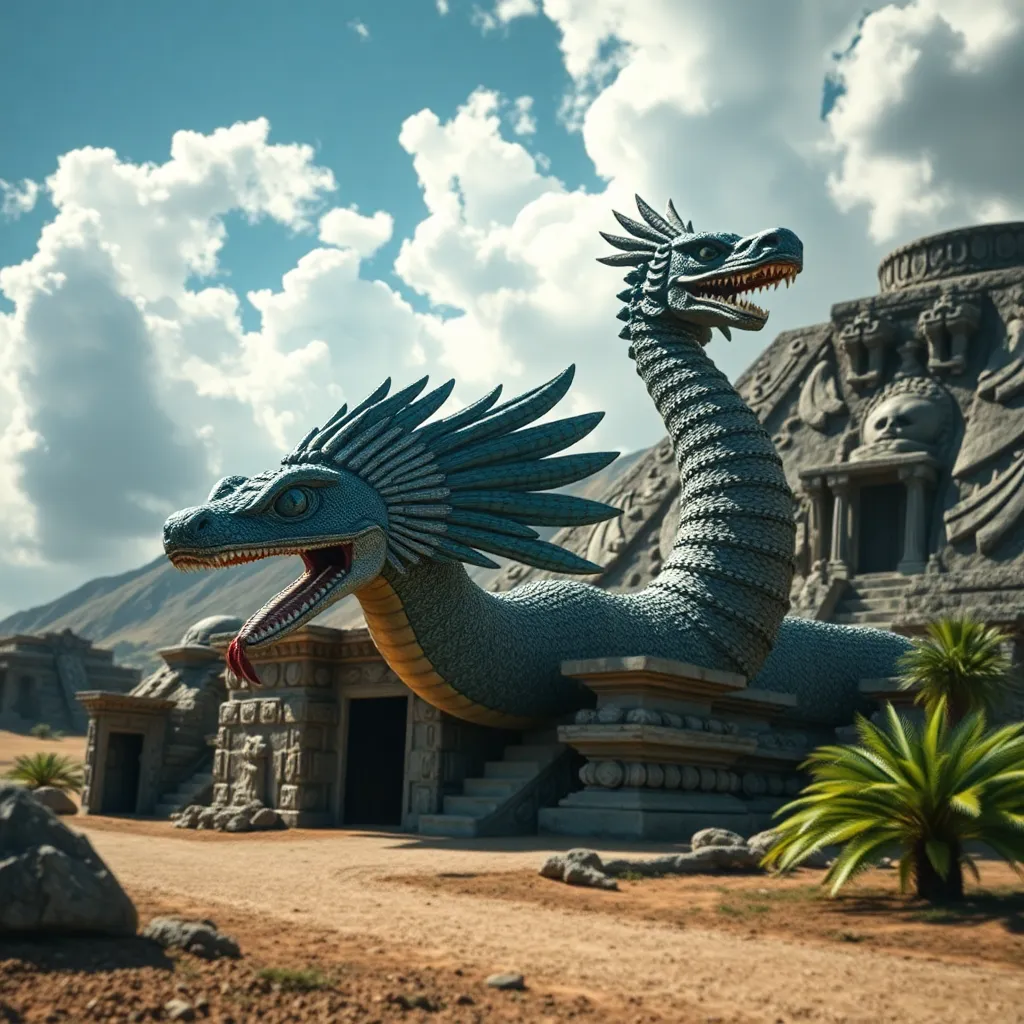Ancient Deities of Healing: Myths That Inspire Modern Medicine
I. Introduction
Throughout history, various cultures have revered deities associated with healing and health. These ancient healing deities represent a blend of mythology and medicine, illustrating how ancient societies sought to explain illness and recovery through divine intervention. Understanding these figures helps illuminate the cultural significance of health practices and the foundations of modern medicine.
This article aims to explore the healing deities across different ancient civilizations, examining their myths, rituals, and the cultural context in which they thrived. We will delve into Egyptian, Greek, Indian, and Chinese traditions, highlighting how these ancient beliefs continue to influence contemporary medical practices and our understanding of health.
II. The Role of Healing Deities in Ancient Civilizations
Healing deities played a crucial role in ancient civilizations, providing a spiritual framework for understanding health issues. Below is an overview of several civilizations that worshipped healing gods:
- Ancient Egypt: Deities like Thoth and Sekhmet were central to medical practices.
- Ancient Greece: Asclepius became a symbol of medicine and healing.
- Ancient India: The practice of Ayurveda is deeply intertwined with divine influence.
- Ancient China: Shen Nong is celebrated for his contributions to herbal medicine.
The cultural significance of these deities often transcended mere belief, intertwining with the daily lives of the people and their approaches to health and wellness.
III. Egyptian Healing Deities: Thoth and Sekhmet
A. Thoth: God of Wisdom and Healing
Thoth, the ancient Egyptian god of wisdom, was also associated with healing and medicine. He was believed to possess immense knowledge in various fields, including the healing arts.
- Myths surrounding Thoth’s medical expertise: According to mythology, Thoth intervened in the battle between Set and Horus, using his wisdom to heal the wounds of the injured.
- Influence on Egyptian medicine: Thoth is credited with developing the first medical texts, which laid the groundwork for ancient Egyptian medical practices.
B. Sekhmet: Goddess of War and Healing
Sekhmet, the lion-headed goddess, embodies the duality of destruction and healing. As a warrior goddess, she was feared, but she was also revered as a healer.
- The duality of Sekhmet’s nature: Sekhmet was believed to bring plagues but also had the power to cure them.
- Rituals and practices inspired by her mythology: The annual festival of Sekhmet involved music, dance, and rituals intended to heal the sick and honor her divine powers.
IV. Greek Mythology: Asclepius and His Cult
A. Asclepius: The God of Medicine
Asclepius, the son of Apollo, emerged as the principal deity associated with healing in ancient Greece. His myths depict him as a figure of immense medical prowess.
- Myths about Asclepius’s powers and his family: Asclepius’s ability to restore life led to his eventual confrontation with Zeus, who struck him down to maintain the balance of life and death.
- The significance of Asclepius’ temples and healing practices: Temples, known as Asclepieia, served as centers for healing, where patients sought cures through rituals, offerings, and the guidance of priests.
B. The Legacy of Asclepius in Modern Medical Symbols
The Rod of Asclepius, a staff entwined with a serpent, remains a prominent symbol in modern medicine, representing healing and the medical profession’s commitment to caring for the sick.
V. Indian Healing Traditions: Ayurveda and the Deities
A. The Influence of Deities in Ayurveda
Ayurveda, an ancient Indian system of medicine, incorporates a spiritual dimension in its approach to health and healing, often invoking various deities.
B. Key Deities Associated with Health and Wellbeing
- Dhanvantari: Revered as the divine physician, Dhanvantari is believed to have brought Ayurveda to humanity during the churning of the ocean.
- Brahma: Known as the creator, Brahma is associated with the creation of medicinal plants and herbs, which are integral to Ayurvedic treatments.
VI. Chinese Mythology: Shen Nong and Traditional Medicine
A. Shen Nong: The Divine Farmer and Herbalist
Shen Nong, a prominent figure in Chinese mythology, is credited with the discovery of herbal medicine.
- Myths of Shen Nong’s discovery of herbal medicine: According to legend, he tasted hundreds of herbs to determine their medicinal properties, thus laying the foundation for Traditional Chinese Medicine (TCM).
- His influence on Traditional Chinese Medicine (TCM): Shen Nong’s teachings continue to guide practitioners of TCM, emphasizing the importance of balance and harmony in health.
VII. The Intersection of Mythology and Modern Medicine
A. How Ancient Beliefs Shape Contemporary Medical Practices
Ancient beliefs and practices regarding health have significantly shaped modern medical paradigms. Many contemporary therapies draw inspiration from traditional practices rooted in mythology.
B. The Use of Herbal and Holistic Remedies Inspired by Ancient Traditions
Herbal medicine, acupuncture, and holistic treatments are examples of how ancient methodologies persist in modern healthcare, reflecting a deep respect for historical wisdom.
C. Case Studies of Modern Medical Practices Rooted in Ancient Beliefs
Case studies include the integration of Ayurveda in modern wellness programs and the resurgence of herbal remedies in pharmacology, showcasing the enduring relevance of these ancient systems.
VIII. The Psychological and Cultural Impact of Healing Myths
A. The Role of Mythology in Patient Healing and Mental Health
Mythological narratives can play a therapeutic role in patient healing, providing comfort and a sense of purpose during illness.
B. The Cultural Significance of Healing Myths Today
Healing myths continue to resonate today, influencing how individuals perceive health, illness, and the role of medicine in their lives.




